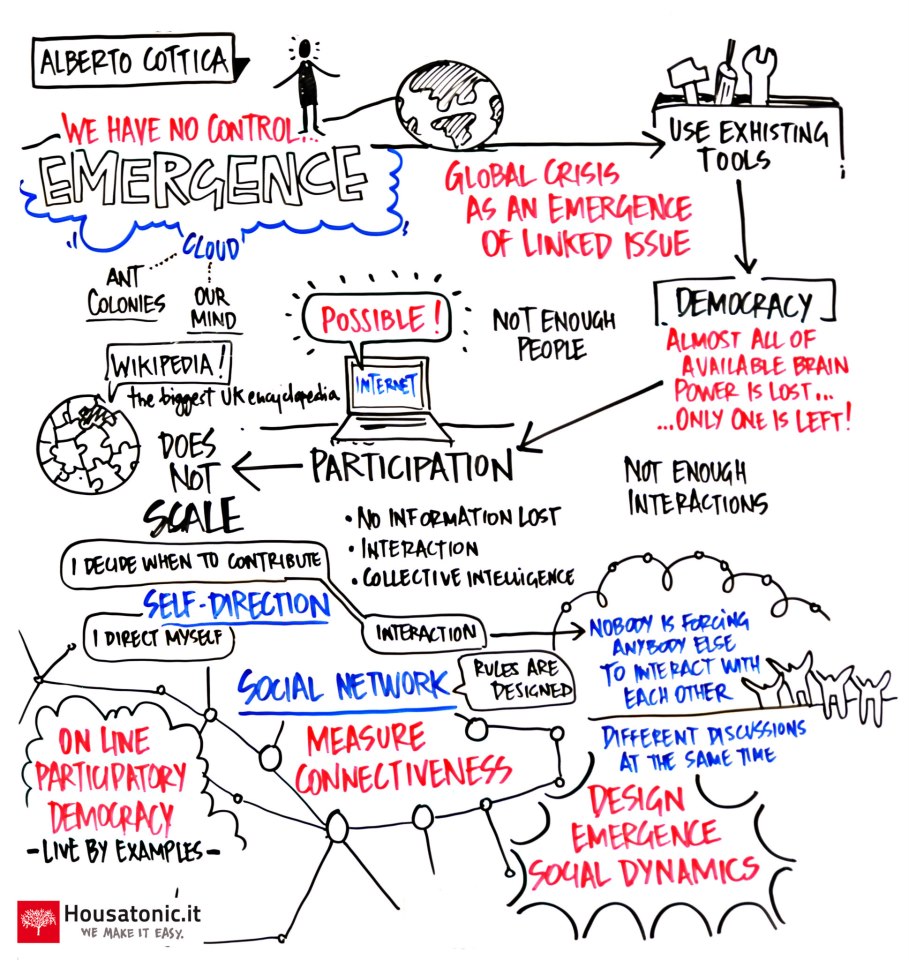In 2009 I was thunderstruck by the elegance and power of network analysis as a way to represent online conversations, thanks to a piece of work that a (then) student called Ruggero Rossi did on a project that I was managing at the time. I have never been able to let go of networks ever since. I have been cultivating hunches and teaching myself the obligatory math and programming techniques; getting my hands dirty with data; I have even come up with a grand vision, that of making participatory democracy work at the planetary scale (see the video above). 2013 is the year when it all comes together, and I push this journey onto some solid result.
Influenced by a second reading of Steven Johnson’s Where good ideas come from, I decided to borrow a technique from the amateur scientists of the English Enlightenment: write everything down, well before your ideas are clear. If you keep at this, you will get what the British call a commonplace book (if you, like me, are Italian you might prefer to call it by its Italian name, Network Notebook.
Wish me luck. Wreck my ship I might, but it certainly is a fascinating journey 🙂
